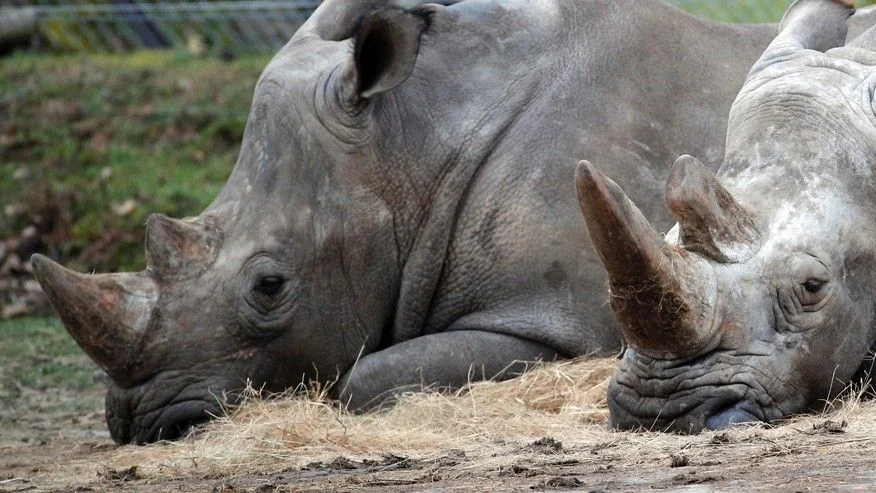The First Time Ever (From the San Diego Zoo Wildlife Conservancy)
Eric, an 8-year-old male East African black rhino from the San Diego Zoo Safari Park, is now a resident of Tanzania. The rhino was gifted to the government and the people of the United Republic of Tanzania to promote breeding of the critically endangered black rhino within the greater Serengeti ecosystem. He will be cared for and reside at Singita Grumeti, a 350,000-acre private concession, which is working with the Tanzanian Wildlife Management Authority and Tanzanian Wildlife Research Institute to conserve wildlife and, in this project, to boost the local population of black rhino in their native habitat…
Article continued at the San Diego Zoo Global Wildlife Conservancy here
Black Rhino Lifted By Helicopter To A New Home
IBM Helps Protect Rhinos Against Poachers
Welgevonden Game Reserve in South Africa features 37,000 hectares (the equivalent of just over 90 thousand acres) of diverse landscapes and geology, and is home to much of the African continent’s stunning wildlife. South Africa is also home to most of the world’s remaining rhinos.
At Welgevonden you will also find something which, at first glance, may seem a quite out of place. Words like IoT, cloud and predictive analytics are typically outsiders at a game reserve, but they belong in Welgevonden for a very good reason – each is part of our attempt to stay one step ahead of poachers and help save what’s left of our country’s dwindling rhino population. Continue reading here
The World's Last Male Northern White Rhino Has Died
Jospeh Wachira, 26, comforts Sudan, the last male Northern White Rhino on the planet, moments before he passed away. Ami Vitale—National Geographic Creative
The world’s last male northern white rhino has died, according to a Kenyan wildlife conservatory and anti-poaching NGO WildAid, spelling the likely extinction for the subspecies.
Kenya’s Ol Pejeta Conservancy announced that 45-year-old Sudan was put down on Monday after battling multiple age-related infections that left him unable to stand.The decision to euthanize Sudan was taken with consultation of Kenyan wildlife officials and representatives from the Dvůr Králové Zoo in the Czech Republic, where he previously lived.
Continue reading the article here.
Rhino Born Thanks to Science!
A female southern white rhino calf, born April 30 to first-time mother Kiazi and father Maoto, curiously checked out her surroundings yesterday morning at the San Diego Zoo Safari Park, under the watchful eye of her attentive mother.
Kiazi’s pregnancy was very exciting for researchers at the San Diego Zoo Institute for Conservation Research. She arrived at the Safari Park in 2008 and, despite breeding regularly since her arrival, she had never before conceived. At 16 years old, she is past the average age that most female southern white rhinos have their first calf.
Continue reading the article here
IRF Responds to Paris Zoo Rhino Killing
The international rhino poaching crisis has now reached Europe. Conservation groups across the world are saddened to hear of the tragic killing of a young male rhino at the Thoiry Zoo just outside of Paris.
“Rhino poaching has historically targeted wild populations,” said Dr. Susie Ellis, Executive Director of the International Rhino Foundation. “This is the first such known poaching incident at a zoo. Criminal networks fairly recently began targeting museum specimens in Europe. Zoos, as living museums, now are also at risk. In response to the Paris rhino killing, we urge all zoological facilities to take serious measures to keep their rhinos safe.”
Continue reading here
Rhino Killed at Paris Zoo
The brazen killing of a rhinoceros at a wildlife park near Paris by assailants who removed a horn valued at nearly triple the price of gold has put zookeepers on notice that poaching could be spreading beyond the killing fields of Africa and Asia.
Demand for the horns is skyrocketing in Asia, where they are ground into a powder and used for medicinal purposes by some who believe it cures everything from cancer to hangovers.
Continue reading here.






